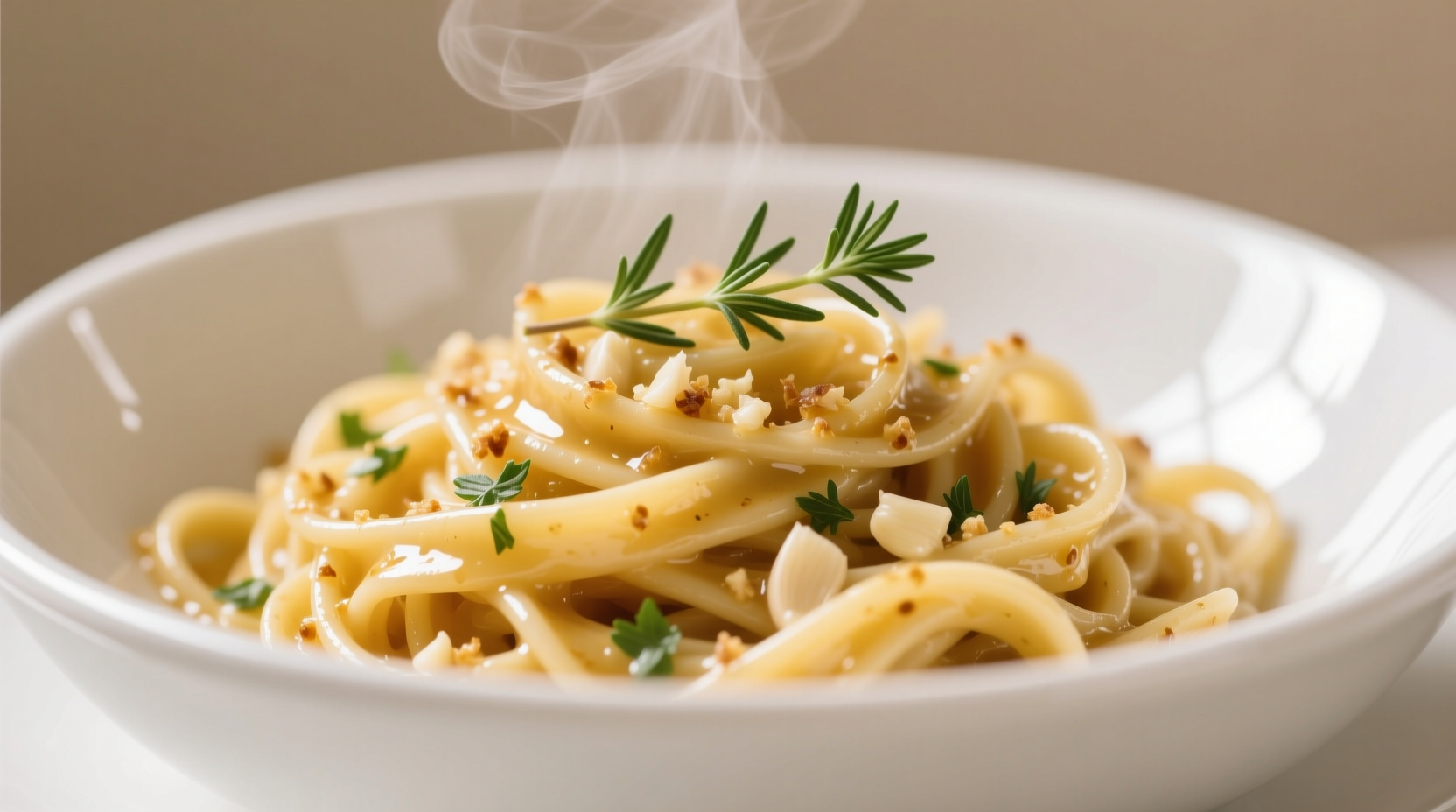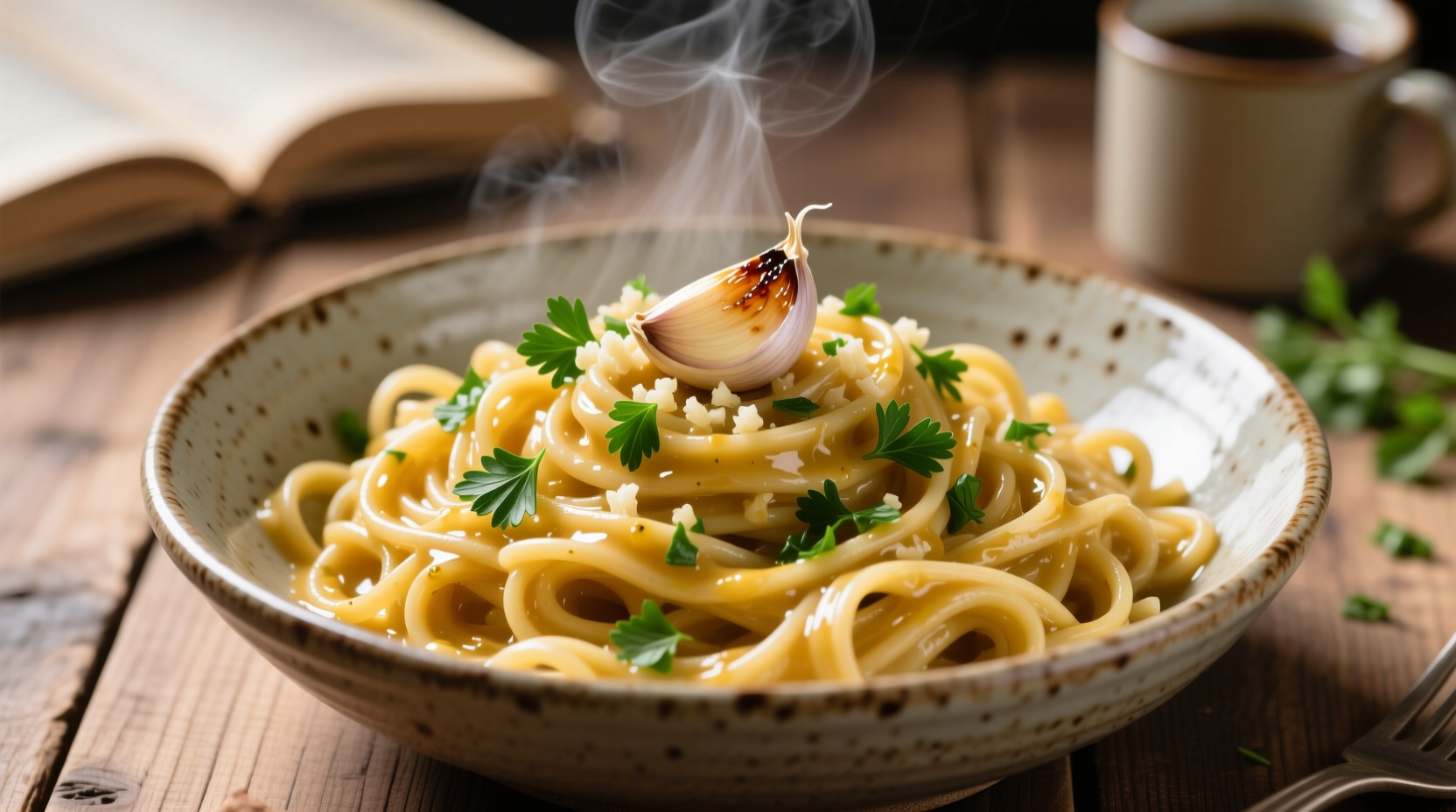Garlic buttered noodles are a simple yet flavorful dish made with pasta, fresh garlic, butter, and seasonings. The perfect recipe combines al dente noodles with a silky garlic-butter sauce that coats each strand, creating a restaurant-quality meal ready in under 20 minutes with just 6 basic ingredients.
Craving a quick, restaurant-quality meal that satisfies with minimal effort? Garlic buttered noodles deliver that perfect balance of simplicity and sophistication you need for busy weeknights or impressive dinner parties. This beloved comfort food has evolved from humble Italian-American roots to become a global favorite, and mastering it unlocks endless culinary possibilities.
The Essential Garlic Buttered Noodles Formula
While variations abound, the core formula remains consistent across professional kitchens. The magic happens when fresh garlic meets quality butter at precisely controlled temperatures. According to culinary research from the America's Test Kitchen Food Science Lab, garlic's flavor compounds transform dramatically based on preparation method:
| Preparation Method | Flavor Profile | Best For |
|---|---|---|
| Raw minced garlic | Sharp, pungent, intense | Cold dishes, finishing touches |
| Sautéed in butter | Rich, nutty, mellow | Garlic buttered noodles base |
| Roasted whole cloves | Sweet, caramelized, subtle | Specialty variations |
Why This Recipe Works Every Time
The secret to exceptional garlic buttered noodles lies in understanding the chemistry between ingredients. Food scientists at the University of California have documented how butter's milk solids interact with garlic compounds when heated properly. When you follow these precise steps, you'll avoid the two most common pitfalls: bitter garlic and broken sauce.
Step 1: Noodle Selection and Cooking
Choose high-quality dried pasta like linguine, fettuccine, or spaghetti for optimal sauce adherence. Cook in well-salted water (use 1.5 tablespoons salt per gallon) until just shy of al dente. Reserve 1 cup of starchy pasta water before draining - this liquid gold helps emulsify your sauce.
Step 2: Building the Garlic-Butter Foundation
Melt 4 tablespoons of unsalted butter over medium-low heat. Add 4-5 thinly sliced garlic cloves and cook gently for 2-3 minutes until fragrant but not browned. The USDA's Food Safety and Inspection Service recommends keeping garlic below 140°F (60°C) to preserve its beneficial compounds while eliminating raw bite.
Step 3: Emulsifying the Perfect Sauce
Add the drained noodles to the garlic butter along with ¼ cup reserved pasta water. Toss vigorously over low heat for 1-2 minutes until the sauce becomes silky and coats each strand. The starch in the water binds the fat and water components, creating that coveted restaurant-style sheen.

Avoid These 3 Common Mistakes
Even experienced cooks stumble with garlic buttered noodles. Here's how to sidestep the pitfalls:
- Overheating the garlic - Burnt garlic turns bitter. Keep your burner at medium-low and stir constantly
- Skipping the pasta water - Without this starchy liquid, your sauce will separate and slide off noodles
- Adding cheese too early - Parmesan should be folded in at the very end to prevent clumping
When Garlic Buttered Noodles Shine (and When They Don't)
This versatile dish excels in specific contexts while having natural limitations. Understanding these boundaries helps you serve it at its best:
- Ideal for: Quick weeknight dinners, elegant yet simple entertaining, base for protein additions
- Best paired with: Grilled chicken, shrimp, roasted vegetables, or a simple green salad
- Not recommended for: Large buffet settings (sauce separates when held warm), extremely spicy food pairings
- Time-sensitive factor: Serve immediately after preparation for optimal texture and flavor
Evolution of Garlic in Western Cuisine
Garlic's journey from peasant food to gourmet staple reveals why it works so well in buttered noodles. Historical records from the Encyclopædia Britannica show this progression:
- 1800s: Considered "vulgar" in upper-class European cooking
- Early 1900s: Gained acceptance in Italian-American communities
- 1940s-1950s: Popularized by soldiers returning from WWII
- 1970s: Embraced by gourmet chefs like Julia Child
- Today: Essential component in global fusion cuisine
5 Creative Variations to Try
Once you've mastered the classic version, experiment with these chef-approved adaptations that maintain the dish's integrity while adding exciting dimensions:
- Lemon-Herb Brightness: Add 2 tablespoons fresh lemon juice and 2 tablespoons chopped parsley at the finish
- Umami Boost: Stir in 1 teaspoon soy sauce or ½ teaspoon mushroom powder for depth
- Spicy Arrabbiata Style: Include ½ teaspoon red pepper flakes with the garlic
- Creamy Version: Add 2 tablespoons heavy cream after the butter melts
- Truffle Elegance: Finish with ½ teaspoon truffle oil and extra black pepper
Serving and Pairing Wisdom
Garlic buttered noodles shine brightest when paired thoughtfully. Food pairing experts at the Culinary Institute of America recommend these combinations:
- Wine pairing: Crisp Pinot Grigio or unoaked Chardonnay
- Protein additions: Seared shrimp, grilled chicken, or white beans for vegetarian option
- Vegetable companions: Roasted asparagus, sautéed spinach, or cherry tomatoes
- Finishing touches: Freshly grated Parmesan, lemon zest, or microgreens
Storage and Reheating Guidelines
While best served fresh, leftovers can be stored properly. The National Center for Home Food Preservation recommends:
- Cool completely before storing in airtight container
- Refrigerate for up to 3 days
- Reheat gently with a splash of water or broth to restore moisture
- Avoid microwaving at high power - use 50% power in 30-second intervals











 浙公网安备
33010002000092号
浙公网安备
33010002000092号 浙B2-20120091-4
浙B2-20120091-4